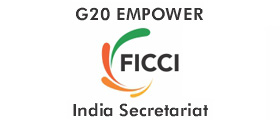The scheme aims to:
| i. | Support and sustain Children in difficult circumstances. |
|
| ii. | Develop context-based solutions for holistic development of children from varied backgrounds. |
|
| iii. | Provide scope for green field projects for encouraging innovative solutions. |
|
| iv. | Cement convergent action by gap funding, if required |
|
Components of the mission and initiatives:
| a. | Support for statutory services including |
|
| i. | Child Welfare Committees, |
|
| ii. | Juvenile Justice Boards. |
|
| iii. | District Child protection units, |
|
| iv. | State Child Protection Society (SCPS) & State Adoption Resource Agencies. |
|
b. |
Strengthen Structures for Institutional and Non-Institutional care, including family and community-based care, emergency outreach, counselling and support services at the national, regional, state and district levels, for providing support to children in need of care and protection and children in conflict with law. |
|
c. |
Service Delivery Structures: The Scheme envisages a Central Project Monitoring Unit for coordination and monitoring with the State governments, while implementing the Scheme, which will function under overall supervision of the Joint Secretary, Child Welfare in the Ministry. The State Child Protection Society shall be responsible for situational analysis, planning, convergence and implementation of the scheme in the state, while the State Adoption Resource Agency shall coordinate with Central Adoption Resource Authority and District Magistrates, for promoting in-country and inter-country Adoptions. |
|
d. |
Institutional Care: The scheme supports Childcare Institutions (Children Homes, Observation Homes, Special Homes, Place of safety, Specialised Adoption agencies and Open shelters) for board, lodging and comprehensive rehabilitation of children in need of care and protection and Children in conflict with law. |
|
e. |
Non-Institutional Care: The Scheme provides for Non-Institutional Care to the Children in Need of Care and Protection (CNCP) by way of sponsorship, Foster care and Aftercare (up to the age of 21 years). 4000 INR (50 USD approx.) is provided for Non-Institutional Care (Sponsorship/ foster care/ Aftercare). The per child maintenance cost has been rationalised to meet the basic expenses as per current prices. Allocation and rate of per child per month maintenance grant for non institutional care is proposed to be increased for encouraging rehabilitation of children in their organic eco-system, extended families and communities. |
|
f. |
Child Helpline: An emergency outreach helpline for children as mandated under the JJ Act, 2015 is proposed to be supported under the scheme with improved coordination with State and District functionaries and integration with 112 Helpline of MHA. |
|
g. |
Other Initiatives: A series of new initiatives are contemplated for addressing the concerns related to the Children in India namely : |
|
| i. | Conducting a national Child Survey in collaboration with Ministry of Statistics and Programme Implementation (including children with all types of disabilities, as acknowledged by Ministry of Social Justice and Empowerment); |
|
| ii. | Investing in development, institutionalization and assessment of Child Index; |
|
| iii. | Developing and hosting a uniform portal to maintain database of children; |
|
| iv. | Grading of Child Care Institutions; |
|
| v. | Child Protection Awards; |
|
| vi. | Gap funding amounting to 20% of project cost, in case of convergent activities; |
|
| vii. | Advocacy & IEC activities; |
|
| viii. | Research and documentation etc. |
|

